Overview
Khwopa College is a community-owned higher education institution in Dekocha, Bhaktapur, affiliated with Tribhuvan University (TU). As a municipal college under Bhaktapur Municipality, it offers Bachelor’s and Master’s programs, including BBS, BBM, BA, BASW, BSc Physics, BSc Environmental Science, MBS, MA English, MA Economics, and MSc Environmental Science.
You can find accurate, student-friendly information on programs, admission, scholarships, fee structure, faculty, facilities, student life, and the college’s role in local education here.
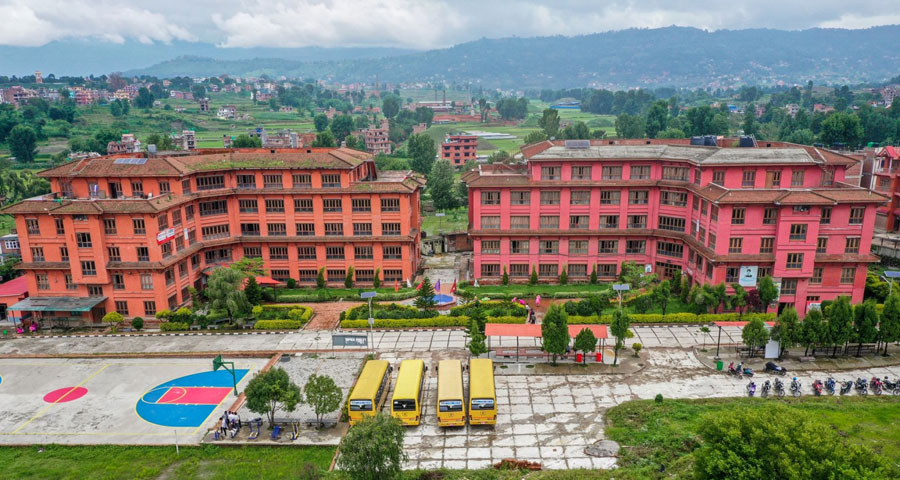
Overview
Khwopa College (ख्वप कलेज) operates as a non-profit, community institution supported by Bhaktapur Municipality. The college started higher education programs in 2001 AD (2058 BS). Its broader education initiative in Bhaktapur began in 1999 AD through sister institutions under the same municipal vision. The campus sits on approximately 55 ropani along the route to Changunarayan, offering a calm academic setting within easy reach of the city core.
The founding purpose is straightforward: expand access to credible higher education at reasonable fees, maintain academic standards, and link learning to social responsibility and productive work. Students enroll from many parts of Nepal, creating a diverse academic community and a steady exchange of ideas.
Affiliation with Tribhuvan University ensures national recognition of degrees, structured curricula, and participation in TU’s annual or semester assessment systems. The college’s academic policy focuses on quality teaching, practical exposure, and transparent evaluation.
Quick Highlights
-
Location: Dekocha, Bhaktapur-6; a short walk from Dekocha Chowk
-
Governance: Community college under Bhaktapur Municipality
-
Affiliation: Tribhuvan University (Bachelor’s and Master’s programs)
-
Academic Portfolio: BBS, BBM, BA, BASW, BEd, BSc (Physics, Environmental Science), MBS, MA (English, Economics), MSc Environmental Science
-
Campus Area: ~55 ropani; twin buildings; auditorium; open stage; sports courts
-
Student Community: Learners from 50+ districts study across programs
-
Scholarships: Entrance-based, performance-based, and enhancement schemes; awards for internal toppers; special quotas per policy
-
Noted Achievements: TU merit distinctions, including MBS TU toppers; annual scholarship distribution recorded in prior sessions
-
Teaching Support: EMIS-supported administration, research cell (RMC), laboratories, field visits, internships
-
Transport & Access: City bus routes to Dekocha; one-way service for Kavre and Kathmandu students
Academic Programs Offered
Undergraduate Programs (TU Affiliated)
Bachelor of Business Studies (BBS)
A four-year program aimed at grounding students in accounting, finance, marketing, and organizational management. Khwopa additionally runs IT-enabled BBS support classes that cover practical tools relevant to BBA/BBM skill sets (e.g., spreadsheets, databases, digital commerce basics).
Bachelor of Business Management (BBM)
An eight-semester program with TU’s CMAT entrance requirement. The curriculum covers managerial communication, decision processes, finance, operations, entrepreneurship basics, and project work. The college supplements with workshops on data analysis and e-business.
Bachelor of Arts (BA)
Focus areas typically include English, Nepali, sociology, economics, political science, and culture studies. Emphasis on writing, analytical thinking, and exposure to new media practices.
Bachelor of Arts in Social Work (BASW)
Field-oriented learning through case assessment, community mobilization, project management, and monitoring & evaluation. Students participate in visits and placements with organizations.
Bachelor of Education (BEd)
Four-year program targeting future teachers with core pedagogy, subject specialization, classroom practice, educational psychology, and assessment strategies.
Bachelor of Science (BSc) — Physics
Solid grounding in mechanics, electromagnetism, quantum concepts, mathematics for physics, and laboratory practice. Students gain hands-on sessions using departmental labs.
Bachelor of Science (BSc) — Environmental Science
Coursework includes ecology, environmental chemistry, GIS basics, climate and water studies, pollution control, and field techniques. The program encourages fieldwork tied to local environmental issues.
Postgraduate Programs (TU Affiliated)
Master of Business Studies (MBS)
Core fields in managerial accounting, finance, marketing decisions, and research methods. Thesis or project components depend on TU framework.
Master of Science (MSc) — Environmental Science
Advanced study of ecosystem processes, research design, data analysis, environmental policy, and lab/field methods. Links to local environmental concerns around the Kathmandu Valley are common.
Master of Arts — Economics
Micro/macro theory, econometrics, development policy, and Nepal-focused economic analysis. Suitable for policy research and planning roles.
Master of Arts — English
Literature, linguistics, critical theory, and academic writing. Graduates can pursue teaching, editing, content development, and research roles.
(At times, the college also runs select Master of Education specializations as per TU approvals and institutional capacity.)
Admission Process
Application Steps
-
Form and Prospectus
Collect the form from the administration office or fill out the online application within the announced window. -
Document Submission
Submit the filled form with photos, transcripts/mark sheets, character certificates, migration (as applicable), and fee deposits per the notice. -
Entrance / Interview
-
BBM: CMAT score is mandatory; shortlisted candidates appear for an interview at the college.
-
BSc: Follow TU entrance norms for respective groups (Physical or Biological).
-
Other programs: The college may conduct interviews or counseling as needed.
-
-
Merit List and Seat Confirmation
Confirm your seat by paying the first installment and completing verification steps within the deadline.
Eligibility (Illustrative Summary; follow current TU rules)
-
BBS, BA/BASW, BEd
Minimum D grade in each subject of Grades 11–12 with CGPA ≥ 1.8, or second division in 10+2/PCL/equivalent. Applicants awaiting Grade 12 results may apply as per policy. -
BBM
Same base eligibility as above plus TU CMAT with minimum qualifying score and a college interview. -
BSc Programs
+2 Science / I.Sc. / A-Level or equivalent with required subject combinations. Final grade C (or GPA 2) in Chemistry, Physics, and Mathematics/ Biology as relevant; A-Level minimum E in the Physical group; TU entrance as applicable. -
Master’s
Relevant Bachelor’s degree with TU admission criteria met; the college may hold interviews/counseling.
Important: Admission notices specify dates, seat counts, and any additional criteria each academic year. Always refer to the latest official announcement.
Teaching Faculty and Learning Methodology
Khwopa College engages a mix of long-serving faculty, visiting professors, and experienced professionals. Many teachers hold advanced degrees and have subject expertise aligned with TU curricula and local needs. The college values clear teaching plans, timely classes, and steady feedback loops.
Instructional Methods
-
Regular lectures supported by tutorials and practicals
-
Discussions, seminars, and guest talks by field experts
-
Internal assignments with defined rubrics and deadlines
-
Field visits, internships, and project work (program-specific)
-
Departmental events that develop communication and research skills
Academic Monitoring and Evaluation
-
Periodic internal tests, terminal exams, presentations, and practical assessments
-
Pre-board examination before TU final assessment
-
Attendance and assignment completion as part of internal evaluation
-
Structured feedback to help students address learning gaps
Infrastructure and Learning Facilities
The college infrastructure is planned for accessible learning and steady student flow throughout the year.
Libraries and Learning Resources
-
Central library with lending and reference sections
-
Textbooks and reference titles across programs
-
Journals, national dailies/weeklies, periodicals
-
OPAC/computerized issuing for organized access
-
Internet-enabled computers for research and writing
Laboratories
-
Physics and Environmental Science labs with core equipment
-
Research and Measurement Cell (RMC) for advanced projects
-
Audio-visual and multimedia support in teaching spaces
Classrooms and Academic Support
-
Well-furnished rooms arranged for visibility and audibility
-
EMIS-based administrative support for records and notices
-
Auditorium, open stage, notice board service for academic and cultural events
Campus and Amenities
-
Twin buildings across ~55 ropani with eco-friendly initiatives
-
Ecological garden, rainwater harvesting, open seating areas
-
Hygienic cafeteria/café
-
Free internet access during college hours
-
Sports courts (football ground, volleyball, basketball)
-
Transportation: one-way service for students from Kavre and Kathmandu
Safety and Conduct
The college follows a code that covers punctuality, attendance, uniform, behavior, and device use inside classrooms. Students are expected to meet attendance thresholds, respect campus property, and follow instructions during examinations and official events.
Student Life and Campus Experience
Student life at Khwopa balances academics with personal growth. Short workshops, reading groups, writing labs, and software skill boosters are common across departments. Students collaborate on class projects, mini-research, field assignments, and presentations that mirror real workplace tasks.
The campus attracts learners from many districts, creating space for new perspectives, languages, and cultures. New students usually find peer groups quickly through orientation, faculty-led meets, and club invitations.
Additional / Non-Credit Add-ons
(offered as per sessional planning)
For BBS/BBM:
Basic computing, databases, data analysis; e-commerce, digital marketing; Tally; banking/finance sessions; personal development training
For BA/BASW:
Academic writing; CV/proposal drafting; graphics; photography and video basics; journalistic writing; psychosocial counselor orientation; project management; M&E; case assessment; new media/online media training
These modules help students practice tools they will likely face in internships or entry-level roles.
Extracurricular Activities (ECA)
Khwopa hosts sports meets, cultural programs, debate sessions, and clean-up/green initiatives around Bhaktapur. Students join social campaigns, book drives, and topical talk series linked to economics, culture, environment, and education. Department clubs often run quiz contests and peer-learning circles.
Sports facilities include football, volleyball, and basketball courts with periodic inter-class events. Cultural weeks feature music, dance, theater, and literature showcases on the open stage or auditorium.
Scholarships and Financial Support
Khwopa College runs a transparent scholarship structure aligned with its community mandate.
Entrance Merit Scholarships
-
Based on +2 results and TU entrance scores (e.g., CMAT for BBM; TU entrance for BSc)
-
May include partial to full monthly fee waivers in the first year for top entrants, as per program policy
Performance-Based Scholarships
-
Awarded to toppers of internal/terminal examinations and TU semester/annual results
-
Examples include up to six months of monthly fee waiver for BBM TU semester toppers; defined percentages for BSc, BBS/BA/BASW, and BEd based on rank and minimum internal scores
Enhancement and Access Schemes
-
Admission fee waivers for Khwopa +2 graduates and community/government school graduates (as per current policy)
-
Monthly/semester fee waivers for a defined share of BBM students from community/government schools who meet CMAT and interview benchmarks
-
Provisions for national/international-level players and recognized ECA talents
-
Partial-to-full support for economically challenged but high-performing students, subject to committee review
Scale of Support
In recent sessions, the college has reported distributing scholarships to hundreds of students, including a recorded disbursal of around NPR 60 lakh to approximately 300 students in academic year 2079/80. The exact number and amounts vary by year, budget, and policy.
Note: Scholarship rules, quotas, continuation criteria (e.g., minimum SGPA or internal percentages), and documentation requirements are published each year. Applicants should review the current notice for specifics.
Achievements and Institutional Milestones
-
Community Model: One of Nepal’s few municipal colleges sustained by a local government for higher education access.
-
Student Recognition: TU merit distinctions in several years, including MBS TU toppers.
Growth Timeline
-
1999–2000 (2056 BS): Khwopa Higher Secondary School began Science and Management; Humanities followed in 2001 (2058 BS).
-
2001–2002 (2058 BS): Khwopa College launched BSc Environmental Science and BBS.
-
2004 (2061 BS): BSc (Physics — PCM/PSM) and BA added.
-
2005 (2062 BS): MSc Environmental Science and MBS started.
-
2007 (2064 BS): MA English introduced.
-
2008 (2065 BS): MA Economics added.
-
2018 (2075 BS): BBM commenced.
Outreach: Students hail from 50+ districts; several alumni work across education, development, environment, finance, media, and public service.
Why Choose This Institution?
Community Governance and Public Mandate
The college operates on a service model: capital expenses (land, buildings, major infrastructure) are supported by Bhaktapur Municipality; operating costs are covered by student fees. This structure helps keep fees reasonable while maintaining campus services.
Recognized Degrees and Program Breadth
TU affiliation across Bachelor’s and Master’s levels allows students to choose pathways in management, social science, education, physics, and environmental science, with opportunities to pursue advanced study.
Practical Exposure
Field visits, project work, labs, and seminars support subject understanding. Departments engage with local issues — especially in environment, culture, and urban concerns — to keep learning connected to real contexts.
Scholarship Pathways
Entrance, performance, and enhancement scholarships create multiple entry points for motivated learners. Students from community schools receive additional consideration under defined schemes.
Accessible Location and Facilities
Located near Dekocha Chowk, the campus is reachable by public buses from key city routes. Facilities include labs, library, sports courts, auditorium, cafeteria, and internet access.
Academic Discipline and Support
Clear attendance norms, pre-board checks, and internal assessments maintain steady study habits. Counseling, orientations, and faculty guidance help new students adjust to college expectations.
Fee Structure (Indicative Overview)
Khwopa publishes program-wise fees annually. The following points summarize the structure typical of recent notices. For exact figures, always consult the current year’s schedule.
-
BSc Environmental Science: Admission fee, annual fees, monthly/annual tuition, and local government contribution itemized by year; payments spread across multiple installments
-
BSc Physics (PCM/PSM): Similar breakdown with annual and tuition components and defined deposit
-
BBS / BA: Admission fee, annual fee, monthly tuition, and contribution fee; four installments commonly used
-
BEd: Lower annual fee compared to other programs, reflecting the college’s teacher-preparation mandate
-
BASW: Annual and tuition components aligned with field-based learning requirements
-
BBM: Semester-wise structure with admission, semester charges, monthly tuition, local contribution by alternate semesters, and a refundable deposit
General Notes
-
TU service and registration fees may be separate.
-
Installment plans are published with timelines (admission, term exams, pre-board, form fill-up).
-
Scholarships may reduce monthly fees under defined rules.
-
Deposits are refundable upon completion, subject to policy.
Students should keep personal copies of payment receipts and check deadline notices to avoid late penalties.
Code of Conduct and Student Support
Key Expectations
-
Arrive before the first bell; maintain discipline in corridors and classrooms
-
Wear prescribed uniform; keep ID visible during class hours
-
Minimum attendance requirement applies to appear in finals
-
Follow exam protocols and assignment timelines
-
Respect campus property; damages are chargeable under policy
-
Mobile devices are restricted inside classrooms during teaching hours
Support Services
-
Academic counseling during admission and semester midpoints
-
Library orientation and research help desks
-
Notice board and digital channels for timely updates
-
Internship linkages where applicable (e.g., social organizations, local enterprises, labs)
Community Role and Partnerships
As a municipal college, Khwopa’s social commitment appears in its fee policy, scholarship volume, and outreach. Departments often collaborate with local entities for fieldwork: environmental sampling around Bhaktapur, social surveys with ward offices or NGOs, media projects on heritage and culture, and economics projects examining local markets.
The college encourages alumni to return as guest speakers or mentors. Partnerships vary year to year based on academic calendars, student interests, and available opportunities.
Quality Assurance and Governance
Governance Structure
-
Management Committee chaired by the Mayor of Bhaktapur Municipality
-
Principal and academic heads oversee daily operations, faculty coordination, and student affairs
-
Committees for scholarship, examination, and discipline handle policy execution and appeals as per guidelines
Vision, Mission, and Goals
Vision
Establish Bhaktapur as a center of academic excellence; strengthen Khwopa College as a competitive municipal college that promotes an informed society.
Mission
Provide research-informed higher education at reasonable fees; ensure access to learners across economic and social strata.
Goals
-
Improve academic quality and student-centered services
-
Build organizational capacity and accountability
-
Deepen community partnership and outreach
Objectives
-
Develop student personality and workplace skills
-
Produce competent human resources for national development
-
Strengthen infrastructure and laboratories
-
Facilitate training and job linkage for graduates
-
Expand research activity across departments
-
Offer responsive administration to stakeholders
-
Link education with productive labor
-
Prepare graduates for 21st-century challenges
How Khwopa Supports Different Learner Profiles
-
Management Aspirants: BBM and BBS with add-on classes in data, e-business, and finance tools; exposure to presentations and project reports
-
Science Learners: BSc Physics and BSc Environmental Science with strong lab work and field components; MSc Environmental Science for advanced study
-
Social Science and Humanities: BA/BASW with writing labs, field immersion, and media training; MA English and MA Economics for advanced theory and applied analysis
-
Education Pathways: BEd aimed at pedagogy and classroom practice; periodic Master’s-level education specializations as available
Accessibility and Transportation
Students can reach the campus within a 20-minute walk from many edges of Bhaktapur city. Public routes such as Kamalbinayak–Kathmandu, Bhaktapur–Lagankhel, and Bhaktapur–Gongabu drop at Dekocha Chowk; the college sits a minute’s walk from there. One-way transport is available from Kavre and Kathmandu as announced each session.
Responsible Information Practices
Khwopa College communicates academic calendars, fee schedules, and scholarship rules through formal notices. Prospective students should rely on current-year documents from the administration or the official website for deadlines and detailed criteria.
Conclusion
Khwopa College offers a community-based higher education pathway in Bhaktapur with TU-recognized degrees, reasonable fees, and a structured learning environment. Programs cover management, social sciences, education, physics, and environmental science, with clear admission routes, scholarship opportunities, and steady academic support. The college’s municipal backing, transparent processes, and campus resources make it a practical choice for students seeking grounded learning with a public-interest outlook.
Contact Khwopa College's administrative office for detailed information on the BE course, including fees, scholarships, facilities, counseling, eligibility criteria, etc.
Contact Details:
Khwopa College, Dekocha, Bhaktapur, Nepal
Phone: +977-1-6610932, 01-6614336, 01-6618031
Email: info@khwopacollege.edu.np
Website: www.khwopacollege.edu.np


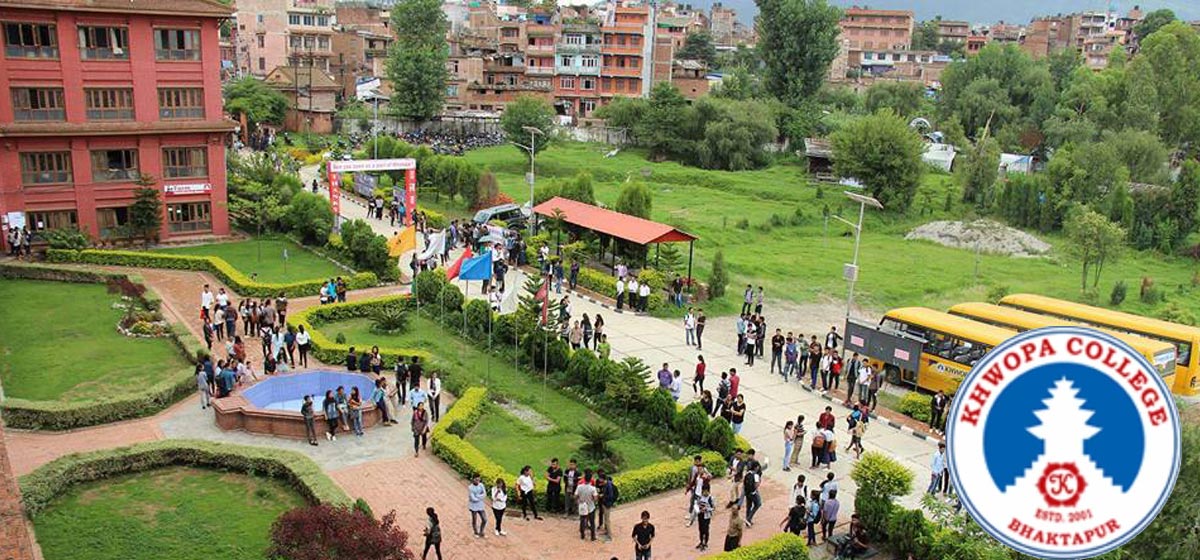

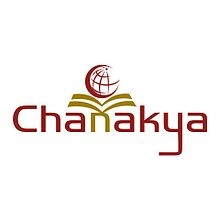
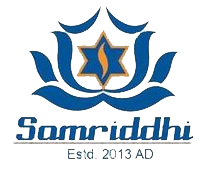
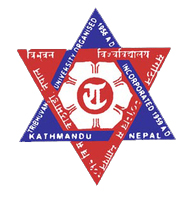
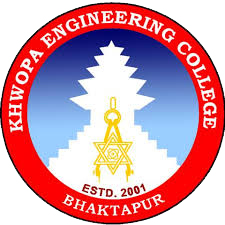
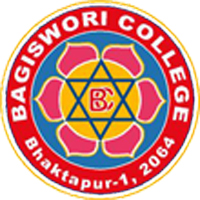
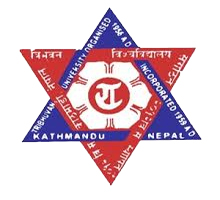










You need to login to comment.